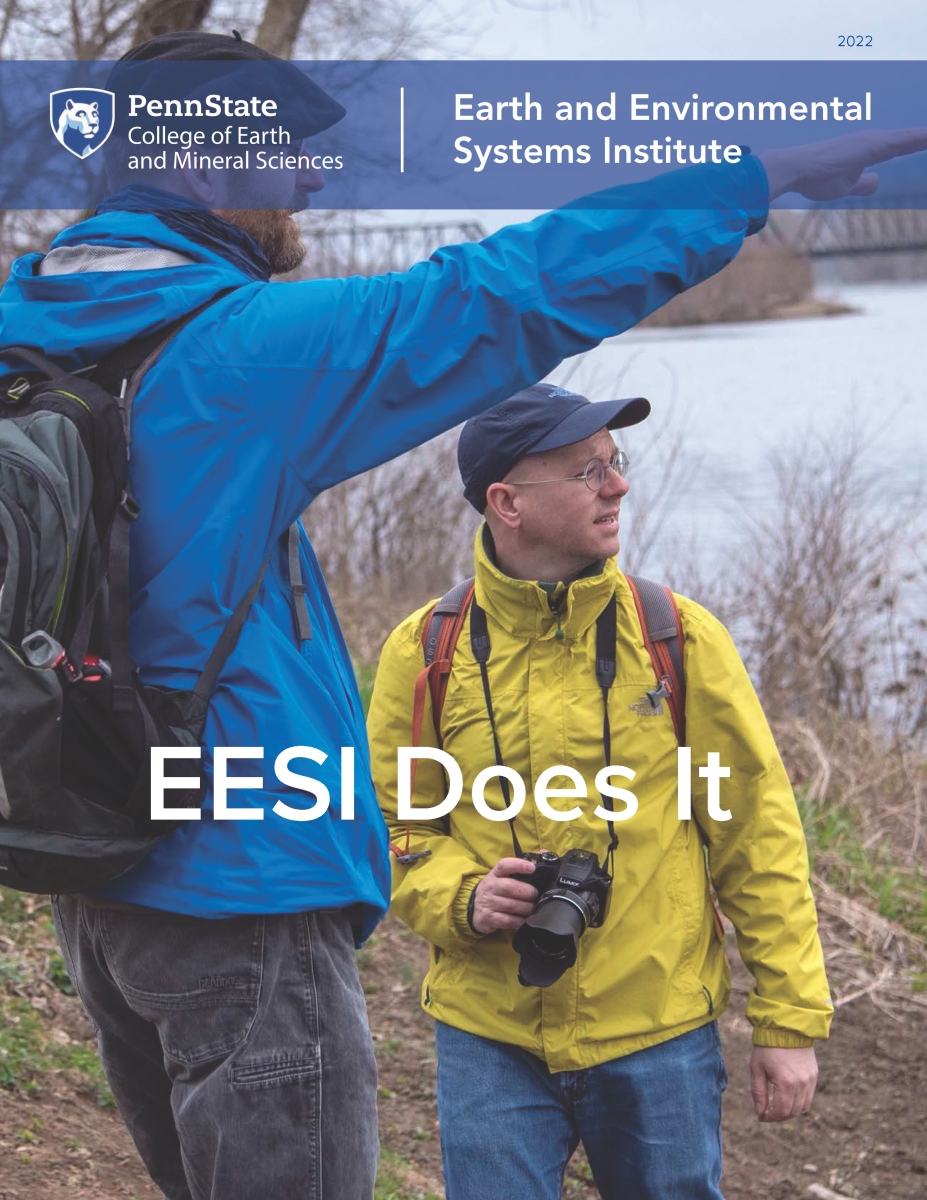 Guido Cervone
Guido Cervone
May 2018
A flood of data is available at our fingertips thanks to things like social media and the internet. This data can be helpful in predicting and responding to natural disasters, but finding the right information in the deluge can be time consuming and difficult.
That's where new EESI associate Guido Cervone and his Geoinformatics and Earth Observation laboratory (GEOlab) come in to play.
Cervone, associate professor of geoinformatics and associate director of the Institute for CyberScience, and his lab work to develop algorithms that can quickly analyze large amounts of data and incorporate useful information from social media feeds.
The group is working to help flood prediction and response, to better understand short and long-term climate predictions for agriculture and energy forecasting and to collect data after environmental disasters like the 2011 Fukuskinma nuclear accident.
"Our research is improving society's ability to forecast and respond to a range of research areas, including flooding and other natural disasters, as well as segments of the energy market, including solar and wind energy prediction," Cervone told Penn State news. "Our methodologies could ultimately have a big impact in both disaster response and our transition to renewable energies."
In addition to his appointments in EESI and Geography and Meteorology and Atmospheric Sciences, Cervone is co-chair for the Research Computing CyberInfrastructure Executive Committee (RCCI) under the office of the Vice President for Research.
He also holds the appointments of Affiliate Scientist at the National Center for Atmospheric Research (NCAR) and Adjunct Faculty at the Lamont-Doherty Earth Observatory (LDEO), Columbia University. He serves as program co-chair for the Natural Hazards focus group of the American Geophysical Union (AGU) and Chair for the Education and Outreach advisory board of NCAR. In 2013, he received the 'Medaglia di Rappresentanza' from the office of the President of the Republic of Italy.
Cervone received his B.D. and M.S. in computer science and his Ph.D. in Computational Science and Informatics from George Mason University.
For more information about Cervone's lab, click here: GEOlab researchers shaping future of energy, disaster forecasting


